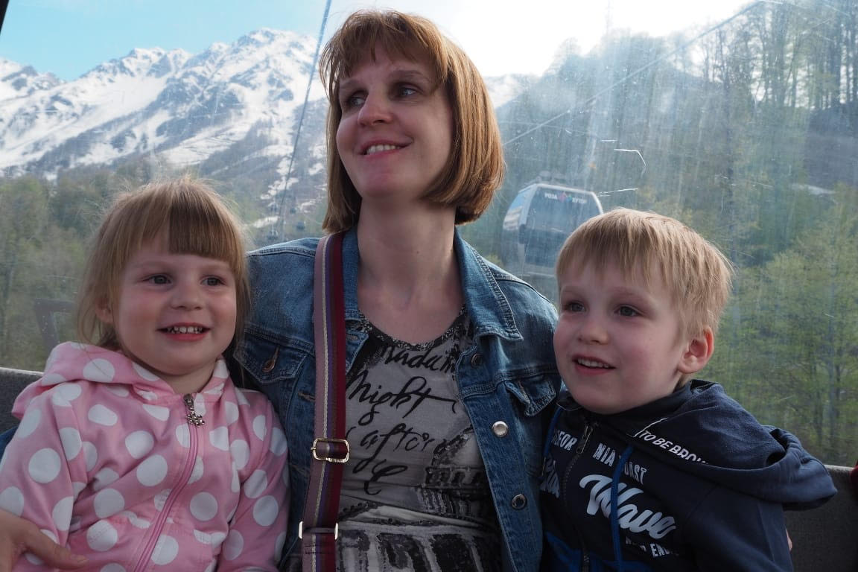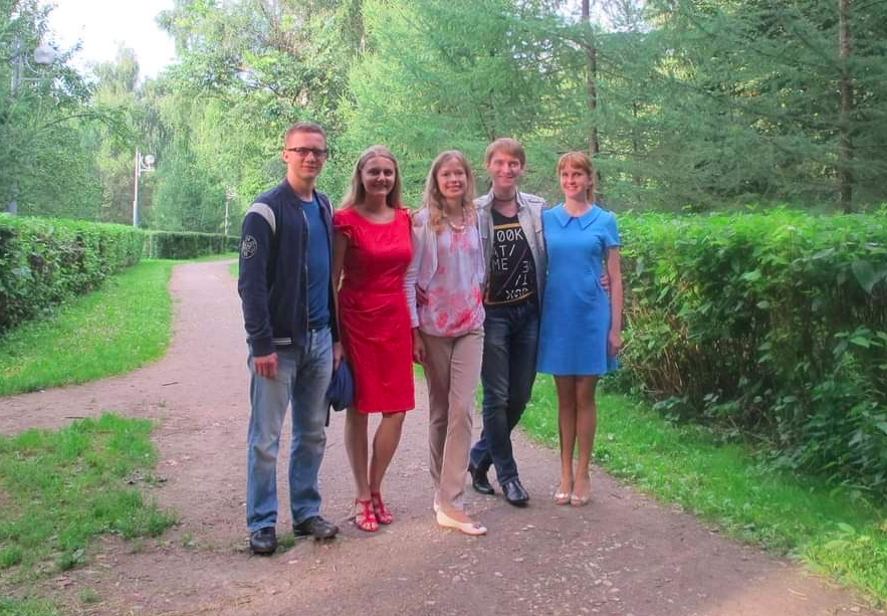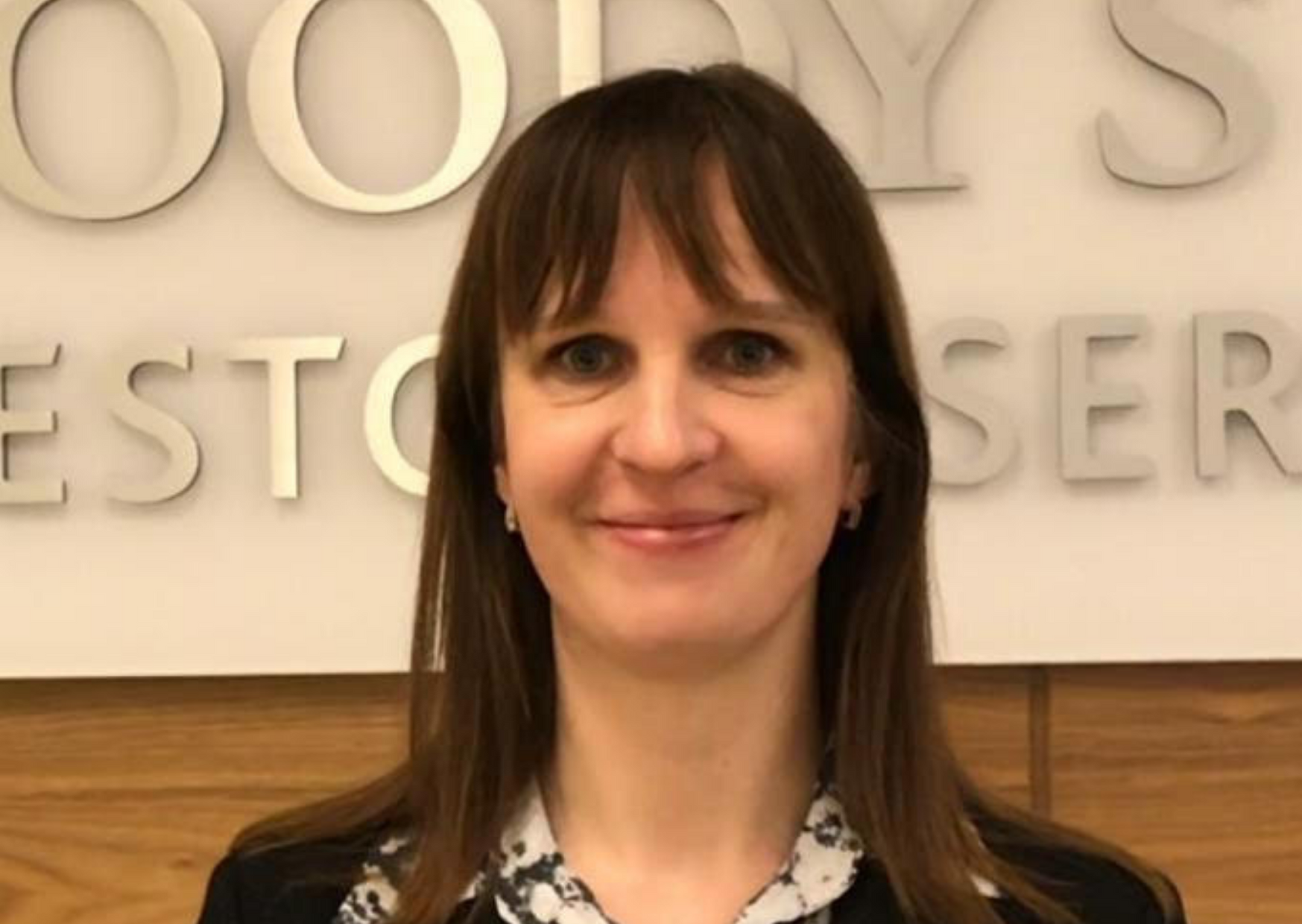'ICEF offers an unusually broad education that gives workplace flexibility'
.png)
Svetlana Pavlova earned her bachelor's degree from ICEF in 2003 and won a scholarship to continue her studies at LBS (London Business School). Svetlana is currently a Vice President–Analyst at Moody's Investors. In this interview, she shares how to win an LBS scholarship through academic networking, how IB analytics differs from rating analytics, and how ICEF gives not only diplomas but also friends.
By the merest accident
I chose to pursue economics education when I was in the ninth grade. In the tenth grade, I tried to enroll in the school of Plekhanov Russian Academy of Economics. It was 1997. HSE was an emerging school I didn’t even hear about. I didn’t make it to the school I wanted but I made it to the one that had cooperation ties with HSE – a preferred choice among the brightest students, as I found out. Later, I got enrolled in HSE without taking exams because I performed well in Moscow Academic Competition in Economics. I got a call from their academic officer that summer who said it was a requirement for academic competitions winners to take an oral English language test and asked me if I would like to try? I passed the test and received a scholarship that covered my tuition in ICEF bachelor’s programme.
How ICEF prepares its students for studying abroad
In my first year I realized my double-degree track was a good opportunity to continue studies at a western university. So, in my fourth year I began to explore the options and send my portfolio to different schools abroad, knowing I would not be able to pay for my studies there I set myself a goal to win a scholarship, and it came quite unexpectedly from LBS, thanks to Professor Amos Witztum. As a visiting professor at ICEF, Amos told me about the PhD programme at LBS, which was free and offered financial support.
I did not plan to build an academic career, to be honest, but receiving a researcher experience at that high level sounded exciting. As a senior student at ICEF, I did an internship at a bank's treasury where my role as an investment analyst made me realize I wanted to be in IB.
My internship had a decisive role in my career. It made me realize where I wanted to be professionally
I studied at LBS for two years, although their PhD program had a duration of 4 to 5 years (the minimum time required by the master's programme is two). Back in Moscow, I did a couple of job interviews and was offered a job by Alfa-Bank. I remember their department manager read my resume and say, “You did a course in England? Very good. It means you are proficient in English.” They put me in the stock market analytics division. I mean the reputation of ICEF works exactly the same.
How ICEF environment works
I thought a lot about what makes ICEF community a special one. It’s really a philosophical question. Some of the friends I made there are still my best friends and colleagues. Why? Probably because of the sense of purposefulness that we all shared aiming for the highest peak of the goals in life, while at the same time supporting one another in an environment of healthy competition. And our teachers, they treated us as equals, cultivating in us personal growth and ability to defend our point of view.

In connection with the courses that have proved very useful in my work, I often remember Irina Ivashkovskaya and her Corporate Finance course which is exactly the field I am working in. I am very grateful to her for the fundamental knowledge she had given me. With her, hitting the books was a nice experience. There were certainly other lecturers who contributed a lot to my professional success, in particular, Oleg Zamkov, our lecturer of Econometrics. He invited me to do a joint publication, which was my first mature project.
The atmosphere at ICEF is largely contributed by communication with the global university community. We were regularly visited by professors from western schools, London in particular, who delivered brilliant lectures and communicated with us students.
Why I chose to work in Moscow
There are many examples of ICEF graduates building excellent careers abroad, especially in London, after completing their master's programmes in Great Britain. My classmate and friend Yulia Chekunaeva studied at the University of Warwick and made a brilliant career in Goldman Sachs office in London, which earned her HSE Gold Award. As a student in London, I didn’t see myself evolving professionally as an academic, so I chose a different career track. I did benefit immensely from my studies there, but I never felt I belonged there. By the end of my second year in London, I knew I would return back to my familiar environment.
At Alfa-Bank, I started as a junior macroeconomics and banking analyst in equity market department. My first supervisor was Natalia Orlova, a well-known Russian analyst in the world of finance and chief economist at Alfa-Bank. The huge responsibility that fell on me in that role made me grow up very quickly. So strange to think of a junior analyst going to Kazakhstan to negotiate with all the banks there and write a report back home. I was very soon poached from Alfa-Bank to Renaissance Capital, where my role was to perform solely banking stock analysis, which sounded (and it still does) more interesting to me than macroeconomics.
The secret of staying sought-after
At that time, there were very few specialists with international degrees on the Russian market, although the market was growing rapidly. Renaissance Capital had a crazy pace. I liked it and was working selflessly. I had a wonderful boss, whom I still consider my best teacher in banking analytics and everything relating to the practical side of my — David Nangle, who spent many years of his career in both Moscow and London helping the emerging banks to grow build their CIS- countries analytics systems. David shared with me his diverse professional experience and international expertise, he gave me many valuable tips and life hacks. We were a young and vibrant team at Renaissance Capital. Business trips, parties, highly inspiring atmosphere and very professional, too.

Back then, as a junior analyst at Renaissance, I had meetings with Sberbank's top management no less often than I do now as a vice president at Moody's; I had a chance to take part in the largest Russian banking IPO — VTB. The market was so lively and open at that time, and it offered such a multi-faceted experience of communicating with the industry leaders around the globe. I was first engaged in CIS banking analysis but then switched to Eastern Europe with its slightly different, more mature market structure. Given that it was my first full-time job as a young investment analyst, the experience I gained was of the best possible at that time.
Improving work-life balance
My industry colleagues described rating agencies as “oh so boring”. But I didn’t think so when I left Renaissance Capital and was looking for a new position. I got married and was planning to have kids, and I needed a job that would come with healthy work-life balance. Rating agencies looked a satisfying choice, unexpectedly.
At the same time, I did not want to lose my skills. I wanted to stay in investment, communicate with large banks, with market leaders, and be a part of financial life. At Moody's, I can plan my day. I have tasks to be achieved over a timeline of several and I know exactly when I must have a project completed. The management respects the employees’ personal time, distributing the work load so that everyone can cope with the amount of working hours. This definitely leaves time for yourself, children and some joys in life.
How equity analytics differs from rating analytics
ICEF offers an unusually broad and fundamental education. For example, the course in Corporate Finance teaches to evaluate stocks, bonds, debt instruments, and companies in general, which gives you workplace flexibility. While before, as an equity analyst, I spent 90% of my time looking at the banks' profit and loss reports and forecasting the stock valuation trends, now I give P&L only 10% of the time and spend the other 90% analyzing bank balance sheet and loan portfolio to predict creditors’ risks rather than forecast growth. This is where equity analytics differs from rating analytics.
It was strange for me at first to “oh, dear” at the growing lending rates because growth is “bad” now. But in everything else my IB skills come in handy. In my recent job, of utmost importance are report writing skills and I know that I am getting projects largely because of my ability to write them professionally.

I do benefit greatly from the writing skills I acquired at ICEF. We were learning to use professional English right from our first year, and later, as part of our international examinations, we were improving them by writing analytical reports, essays and term papers. At the time I started my career, candidates’ having English writing skills was a huge asset on the labor market.
Why they stay connected
ICEF graduates has a very friendly community. They continue to be a part of ICEF even after graduation, offering support in every possible way, especially with career guidance. I recently organized a joint event involving ICEF Career Services and Moody's, which was my first experience in this line of interaction. My current job relates also to corporate social responsibility and organizing career guidance for future financiers. When assigned this role, the first thing I thought about was to do a joint project with ICEF. Our first event was held in April 2021. It was a series of Zoom mock interviews. We interviewed twelve students for a number of virtual positions at Moody's and in the end provided them with detailed feedback and recommendations.
Moody's office in Moscow is quite small – around 35 to 40 people, of whom 20 are in analytics and have two ICEF graduates in their team, an indication that ICEF has earned itself a good reputation as a brand name in the Russian and international markets. As for interpersonal relationships, I can safely say that ICEF is like a family of friends that will only grow stronger to stay in your life.